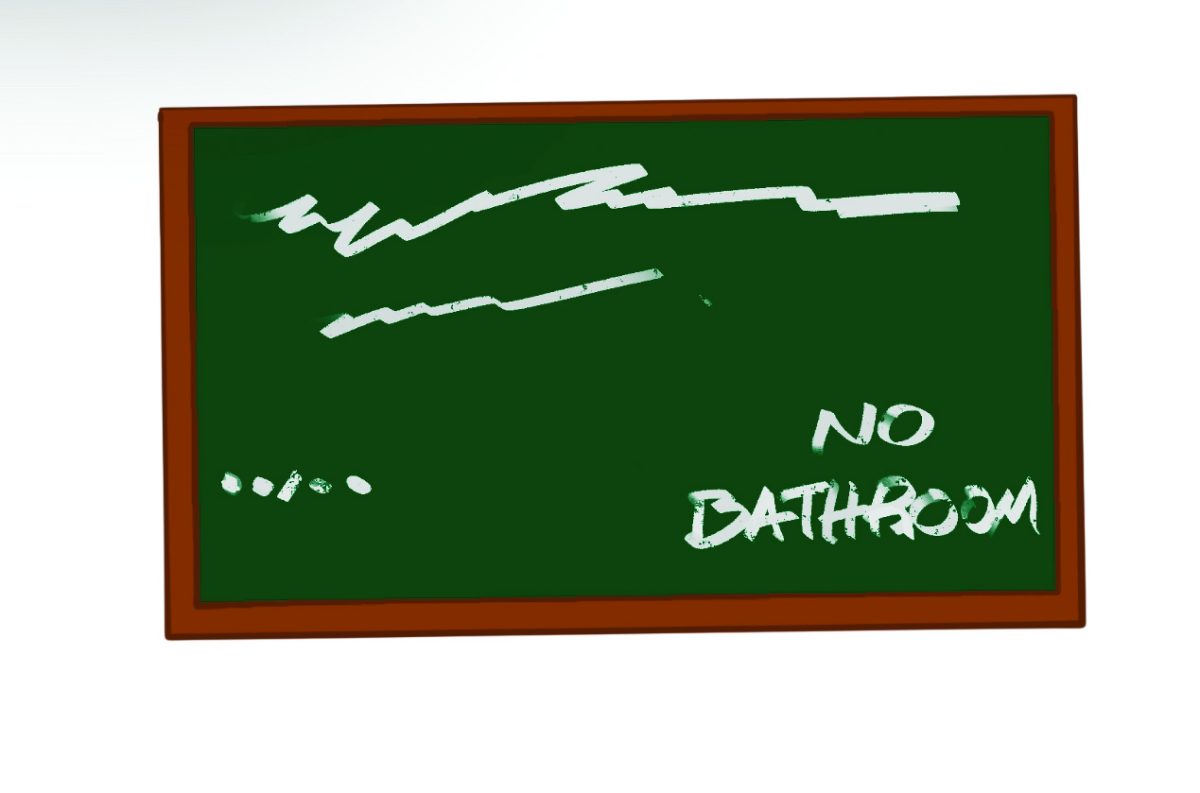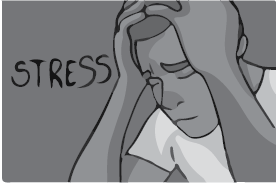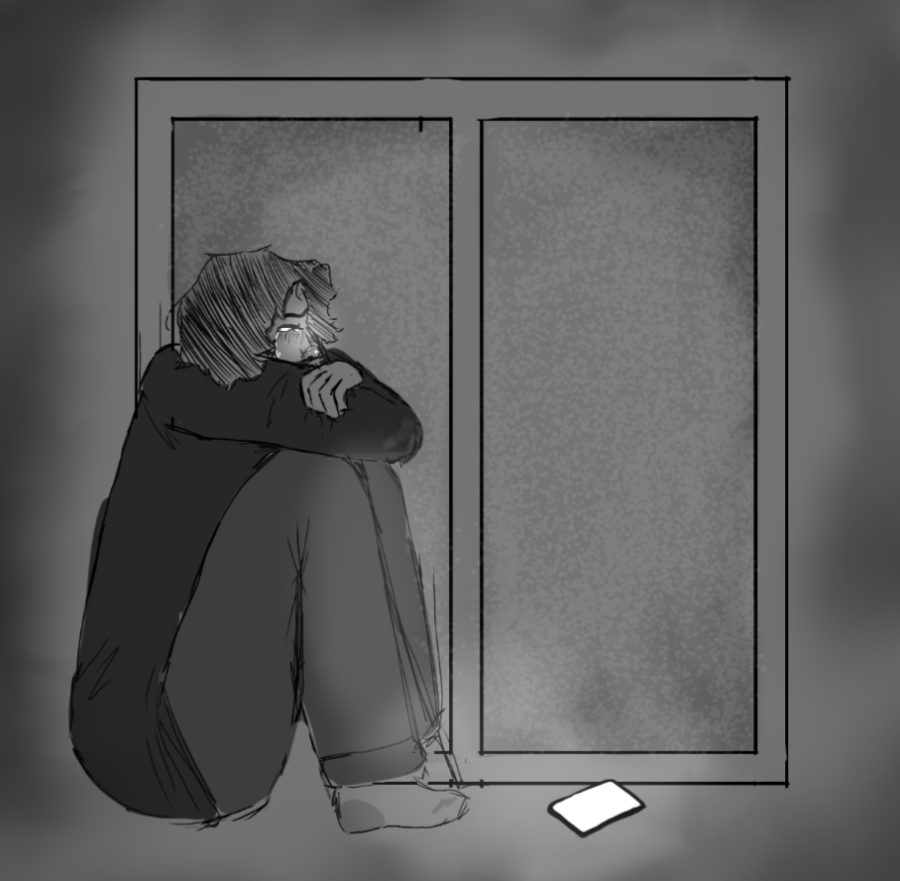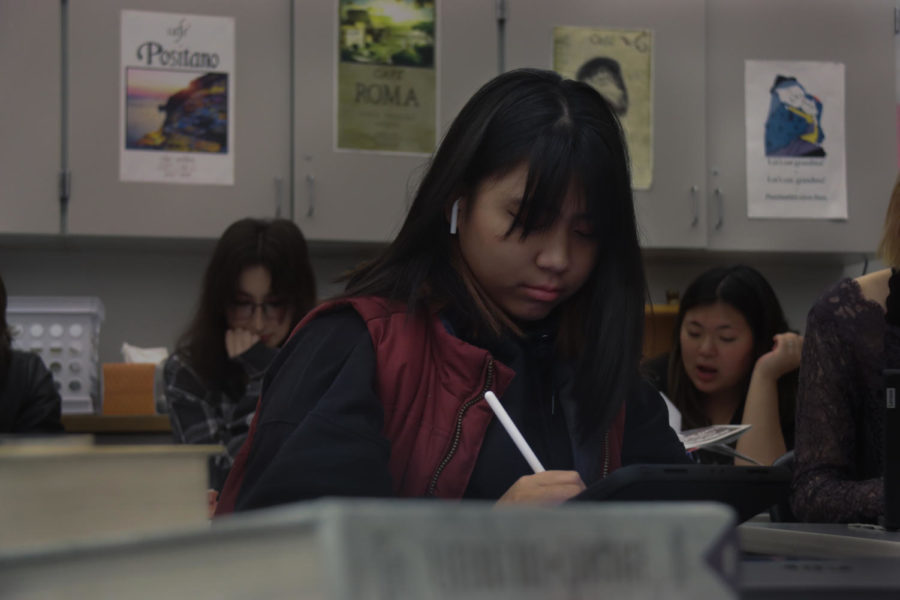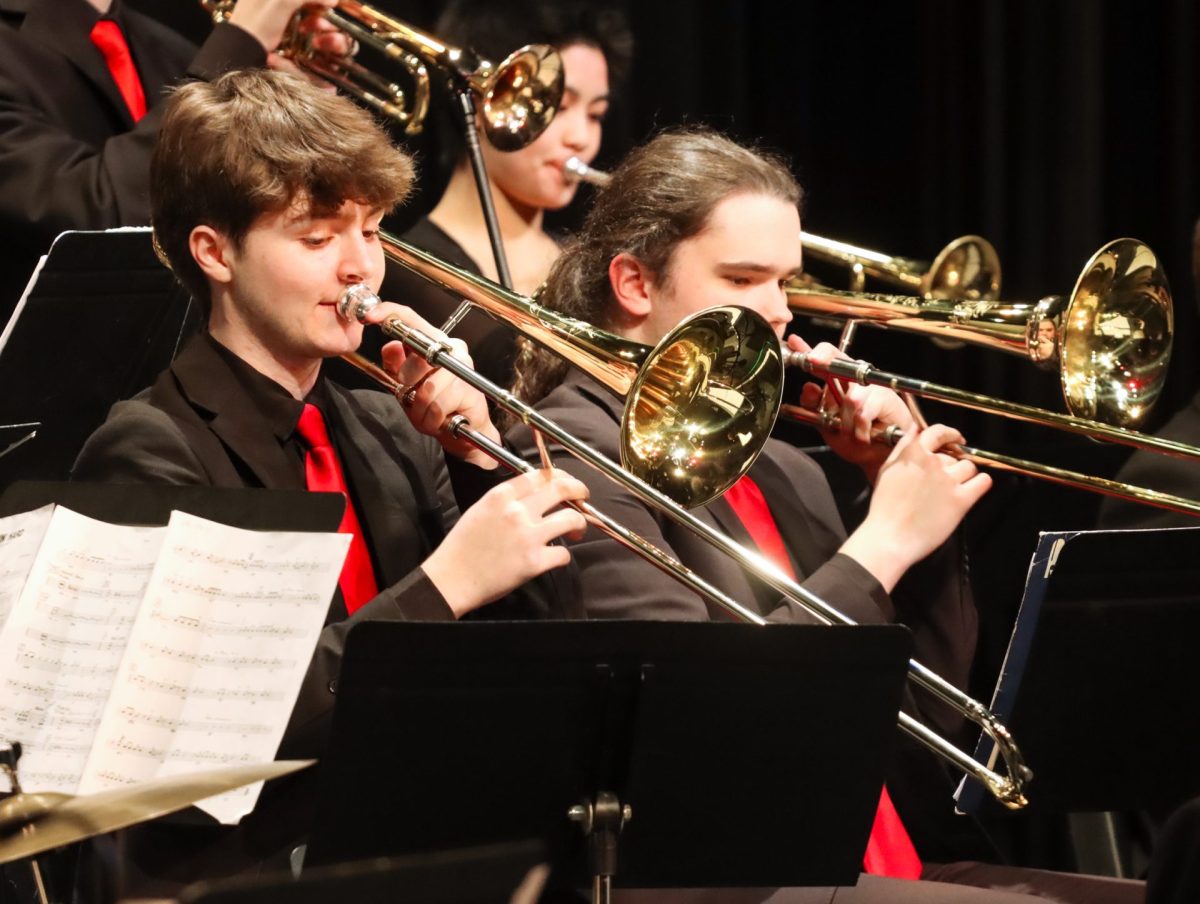With the 2016 presidential election coming into full swing and political tensions reaching a fevered pitch, it’s not surprising that many students are attempting to find their own political identities. So, where do MTHS students’ political ideologies line up?
Between March 14 and 18, the Hawkeye conducted a scientific survey on the political makeup of current Terrace students.
In designing the survey, the Hawkeye took into account certain demographics and characteristics. Among them are race, sexual orientation, grade, gender identity and religion. We’ve compiled data regarding a number of issues, including foreign policy, social issues and economic policy and analyzed MTHS students’ opinions on those topics. As for the process of conducting this survey, The Hawkeye went to two history-based classes from each grade, one of the classes being AP or Honors, and the other being standard curriculum, surveying a total of 102 respondents – or roughly 8 percent of the entire student body. The response rate would indicate a 95 percent certainty of accuracy within an 8-point margin of error.
Social, Civil and Domestic Issues
Most students who responded to the poll took a moderate to slightly left-of-center stance on most social issues. On questions pertaining to social justice there was a higher percentage of respondents that aligned with traditionally liberal views.
For example, an overwhelming majority of students, 85 percent, said that business owners should not be able to discriminate based on sexual orientation and that everyone should be treated equally. Just 6 percent answered that a business should be able to deny service to anyone and 2 percent said owners may refuse service only if it violates their religious beliefs.
Junior Gabriel Castoe gave his reasoning as to why an overwhelming majority of respondents were against discrimination and said that “it is a basic human right not to be discriminated [against].”
With the current controversial political atmosphere on immigration, the question of what should be done with illegal immigrants is as relevant as ever. The Hawkeye found that a slight majority, 53 percent, of respondents said that illegal immigrants should be given a path to citizenship, a more liberal-leaning view. Of the respondents, 16 percent wanted to deport illegal immigrants and 4 percent wanted to grant them full amnesty.
Sophomore Audrey Carson speculated that most students prefer politicians give illegal immigrants a path to citizenship because they think immigrants should be able to gain citizenship, but they should have to go through a specific process to do so.
“They should go through a path [to citizenship] because if they want to be in our country they should work for it,” she said.
Concerning climate change, another slight majority of respondents viewed climate change as a real and pressing issue, with 52 percent responding that regulations are necessary to combat it. Sophomore Matt Correa agreed with the majority and noted the danger of climate change. Just 10 percent said that a free market would do a better job at combating climate change than the government.
“Global warming is by far the biggest issue we face. We’re setting up a terrible environment for our next generation,” Correa said.
Science teacher John Traxler also credited the students’ opinion to the fact that climate change is a major threat to the world.
“Terrorism, the economy, they can’t destroy the planet.” Traxler said. “But not focusing on climate change can.”
When it came to civil liberties, the results concerning three issues stood out.
Students had varying opinions on whether the United States should toughen gun control measures. Of the respondents, 40 percent viewed gun violence as a mental health issue as opposed to a gun control problem. A close second at 39 percent favored proposed background checks and/or a ban on assault weapons, a more liberal-leaning stance, and 15 percent believed more gun control is not the solution and abolishing gun free zones is the best option, a more conservative opinion.
Students were similarly split on the topic of the National Security Agency’s (NSA) metadata program, in which the agency has the power to surveil all Americans’ phone data, for example. At 47 percent, most thought that a warrant should be required for the government to spy on American citizens. Meanwhile, 30 percent believed the program is an outright infringement on America’s civil liberties and 19 percent said this program is necessary to combat terrorism. A small 5 percent took the most libertarian approach and said the NSA should be abolished.
Concerning hate speech, an overwhelming majority of students considered it free speech, with 73 percent of respondents sharing this belief. Yet 22 percent of respondents believed that everyone deserves a safe place from hate speech and that it is not the same as free speech, while 6 percent viewed that hate speech should be protected unless it’s within a university or public school.
Junior David Robert gave his own insight as to why students responded in favor of free speech.
“So few said [that hate speech should be censored] because so many people value free speech. It’s a Bill of Rights kind of issue,” Robert said.
Correa, however, disagreed with the majority opinion and believed no one should be promoting hate.
“It’s my personal philosophy that people should not be promoting hate. People like Donald Trump are promoting this idea of hate,” he said.
Economic/Fiscal Policy
Issues such as income inequality and the national debt have been talked about a lot lately in the recent political discourse. The Hawkeye again found that overall the general populace of the student body have a moderately liberal view when it comes to economic and fiscal policy.
On income inequality and the rich paying their “fair share,” 57 percent viewed that income inequality as a serious issue and the rich should pay more in taxes. Yet 43 percent either view inequality as a non-issue or are against the notion of the rich paying more. Furthermore, 11 percent answered that a flat tax is the best solution, not higher taxation on richer Americans.
Sophomore Audrey Carson believed a flat tax would be a far better solution.
“If there is a flat tax then everyone would be treated the same, but it should be low enough to where the poor can pay it,” she said.
When it came to fiscal policy, 65 percent of respondents were not willing to cut spending if it hurt welfare.
“[The United States] wants everyone to have the chance to live a decent life,” Junior Gabriel Castoe reasoned.
Some 17 percent of people were willing to cut spending, but only military. In addition, only 12 percent said that the United States should cut both domestic welfare and military.
On economic philosophy and principles, most viewed that a mixed economy benefits society the most, with 49 percent answering this. Yet 32 percent thought that a free market benefits society most efficiently.
When it came to the minimum wage, 35 percent took a position of raising the minimum wage, but not quite to $15 an hour. Meanwhile 32 percent of people responded that raising the minimum wage would kill jobs. Not far behind that, 29 percent viewed that everyone deserves a living wage at $15 and just 5 percent said that there should be no minimum wage in the first place.
Humanities teacher Chris Ellinger also shared his thoughts on the minimum wage, explaining that “[the] minimum wage [is an issue that] really hits at the heart because teens want to be paid more and that makes sense.”
History teacher Shawna Bogren believes that not all students are informed about U.S. economics.
“[Students] are unsure of the big picture, most of you guys just got a debit card,” Bogren said.
Ellinger agreed and attributed the students’ answers to a “lack of exposure” to such topics.
Foreign Policy
Many respondents took a seemingly indifferent stance on foreign policy, with no overall tilt in a conservative or liberal view. The results were mixed on the political spectrum.
One example of this was students’ response to deploying troops to the Middle East to defeat ISIS.
For this part of the survey, respondents were asked to rate their opinion on a scale of one to seven, one being they strongly disagree and five being they strongly agree. In the middle, four was set at “no stance.”
While 40 percent of respondents took no stance on the issue, the many responded with a “5” – resulting an average of 4.43, meaning an inclination towards intervention in the Middle East.
Students had seemingly contrasting opinions on military intervention when it came to troops returning from the Middle East from Afghanistan and Iraq.
Bogren made a connection between students’ beliefs about Afghanistan and Iraq to social issues, such as gay marriage and abortion.
“Students know people who are gay, [women who] have had abortions, [as well as] people in the military,” Bogren said.
However, Ellinger thought that there was a definite affinity toward social issues rather than issues regarding foreign policy, attributing it more to a lack of exposure. The other questions elicited a more “immediate reaction” rather than an answer based off of sound opinions.
“Social issues are more meaningful to [students] when they have more knowledge,” Ellinger said.
With an average answer score of 4.90, there was a slight preference towards bringing the troops back to the United States, with a majority of respondents answering indifferent again.
On the topic of drone strikes, there was a slight tilt toward military liberalism with an average answer of 3.99, again with the majority being indifferent on the issue. Those who had an opinion were slightly more liberal on the scale, with the next highest rank being “three” at 29 percent.
On the issue of Syrian refugees, most respondents were, again, indifferent to this issue, but less so than other foreign policy questions. Only 29 percent of respondents had no opinion, while the rest leaned more towards a liberal refugee policy with 51 percent having a score of five or above, with 20 percent having a score less than four.
Senior Jessica Phung said she understands why those in Syria are immigrating to the United States because her own parents are immigrants.
“[The Syrian refugees] want a better life for their family. They are people who just want their children to have a better future. I could not look someone in the eye and tell them they have to leave their children to have a better future,” Phung said.
She also said she didn’t like the idea of isolating immigrants because “deporting is an ‘us vs. them’ mentality when the country is a country of immigrants to start with.”
Bogren saw the increased liberal and opinionated beliefs regarding the Syrian refugee crisis as a result of increased awareness.
“[Students] are learning the conditions [Syrian refugees] are living with and this makes people a little more willing to accept them in,” Bogren said.
Social and Domestic Policy
When it came to social-domestic policy topics the majority of responses were overwhelmingly liberal sans one particular question – the death penalty.
Marijuana legalization saw 25 percent answering that they strongly agree with marijuana legalization, with every other respondent being above a four rather than the minority of 13 percent who strongly disagreed with it.
When it came to abortion there was not as large of a tilt towards a liberal point of view as gay marriage and marijuana legalization, but still a large liberal bend nonetheless. While 29 percent took no stance, 25 percent strongly agreed that abortion should remain legal. Besides the 19 percent who strongly opposed it, the remaining respondents voted a score of 5 or more.
The only scaled social issue that the majority took a more conservative approach was the death penalty. The majority were indifferent at 24 percent, but the next three highest scores were scores of 5, 6 and 7 with a cumulative 59 percent of scores being above the score of 4.
“Most high school students are much more open and willing to help people and are more okay with these ideas,” Bogren said, offering her perspective on why students tended to be more liberal on the majority of these particular issues.
Gay marriage had the largest tilt in any one direction, with an average report of 5.67. A majority 59 percent strongly agreeing with it, with a score of seven, 16 percent taking no stance and only 10 percent strongly disagreeing with gay marriage.
Junior Taylor McCulloch commented on this large tilt in favor of gay marriage, saying that people tend to be more sensitive.
“People feel that way because it’s seen as normal and people are sensitive to issues like that,” she said.
Senior Daren Mangune also responded to this question with his own opinion on gay marriage.
“Love is love, it’s not between a man and a woman but a person and a person,” Mangune said.
Other findings
Based off the data amassed, students had more knowledge and stronger opinions and convictions in issues that were more relevant to them and affected them as a person. Most of these issues involving social and domestic policy.
Issues such as gay marriage and marijuana legalization, for example, relate more to millennials and young people as opposed to foreign or economic policy.
On foreign affairs, the majority of answers took no stance rather than solid principled responses. When it came to economic and fiscal policy, it depended on the specific question asked as to whether there were either a diversity of responses or if the responses were most likely attributed to the amount of exposure students have to a topic.
For example, the minimum wage being raised to $15 had a more diverse set of answers compared to cutting spending to pay off the national debt, implying that students were more well versed and had a broad variety of opinion and knowledge on such an issue.
Overall, this survey expounds on the notion that MTHS is a very inclusive and socially accepting school while it also addresses the issues that students here are not as well exposed to.
Ellinger expressed the goal of this survey himself.
“Hopefully it would spark [an interest]… ‘maybe [a student] would like to learn about…ISIS [for example]’.”
Our goal for this survey and data is to show the political makeup of MTHS and hopefully lead people to become more aware of the issues surrounding them.



